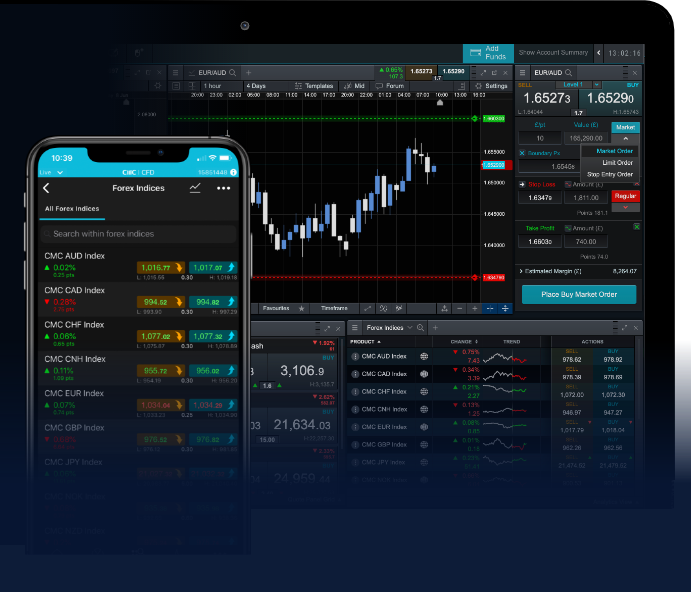
Is Forex Trading Profitable? A Comprehensive Analysis
The world of foreign exchange (Forex) trading is often seen as a gateway to financial independence and wealth creation. But is Forex trading truly profitable? In this article, we’ll delve into the various aspects of Forex trading, examining whether its potential rewards outweigh the inherent risks. We’ll also explore strategies, the economic factors that influence currencies, and practical tips for those looking to enter this volatile market. For further insights, you can visit is forex trading profitable Global Trading PK.
The Basics of Forex Trading
Forex trading revolves around the buying and selling of currencies on the foreign exchange market, which is one of the largest financial markets in the world. The goal is to profit by exchanging one currency for another at favorable exchange rates. Unlike stock trading that typically takes place on centralized exchanges, Forex operates 24 hours a day through a global network of banks, brokers, and financial institutions.
Profitability Potential in Forex Trading
The profitability of Forex trading depends on various factors, including the trader’s skill level, market conditions, and strategies employed. Many traders are drawn to Forex due to the following potential benefits:
- High Liquidity: Forex is known for its high liquidity, meaning that traders can enter and exit positions quickly without affecting the asset price significantly.
- 24-Hour Market: With operations around the clock, traders can engage in the market at their convenience, accommodating diverse lifestyles and schedules.
- Leverage: Forex brokers often offer significant leverage, allowing traders to control larger positions with smaller amounts of capital. While this can amplify profits, it also increases potential losses.
The Risks Involved

Despite its advantages, Forex trading is fraught with risks. It’s critical to understand these risks before diving in:
- Market Volatility: Currency values can change rapidly due to geopolitical events, economic data releases, and other market factors, leading to increased risk.
- Leverage Risks: While leverage can enhance profits, it can also magnify losses, sometimes exceeding the initial investment.
- Emotional Trading: Emotional decisions often lead to poor trading choices. Successful trading requires discipline and emotional control.
Strategies for Successful Forex Trading
To navigate the Forex market successfully, traders employ a variety of strategies, which can be broadly categorized into three main types: fundamental analysis, technical analysis, and sentiment analysis.
Fundamental Analysis
Fundamental analysis involves studying economic indicators, interest rates, and geopolitical events that could affect currency values. Traders who use this approach often spend significant time analyzing news and trends in the economy to predict currency movements.
Technical Analysis
Technical analysis relies on historical price data and chart patterns to forecast future movements. Traders use various indicators, such as moving averages, Relative Strength Index (RSI), and Fibonacci retracement levels, to identify entry and exit points.
Sentiment Analysis

Sentiment analysis gauges the overall mood of market participants, often relying on news sentiment and trader positioning data. Understanding the collective sentiment can provide insights into potential market movements.
Building a Successful Trading Plan
A well-structured trading plan is crucial for long-term success in Forex trading. Key components of a trading plan include:
- Goals: Define clear, realistic goals for your trading activities.
- Risk Management: Establish risk tolerance levels and ensure proper money management practices.
- Strategy: Clearly outline the trading strategies you’ll use based on research and analysis.
- Review Process: Regularly review and adjust your trading plan based on performance and changes in market conditions.
Conclusion: Is Forex Trading Worth It?
In conclusion, Forex trading can be profitable, but it requires a solid understanding of the market, a well-defined strategy, and strict risk management. While some traders achieve significant gains, others face losses due to the inherent unpredictability of the market. Factors like market volatility, leverage risks, and emotional decision-making play substantial roles in a trader’s success.
For those willing to dedicate the time and effort to learn about Forex trading, develop strategies, and continuously adapt to market changes, the potential for profitability exists. However, it’s essential to approach Forex trading with a realistic mindset and acknowledge both the risks and rewards involved.
As you consider entering the Forex market, ensure you’re educated and prepared, and always trade responsibly.
